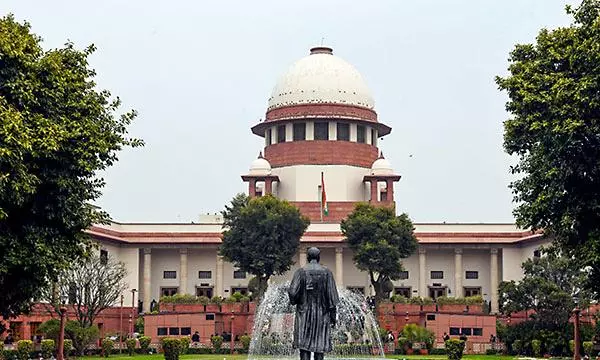
SC okays separate quotas for marginalised among SC/STs in landmark verdict
The 6:1 majority ruling overrules the 2004 judgement of a five-judge Constitution bench in the case of EV Chinnaiah vs State of Andhra Pradesh

In a landmark verdict, a Supreme Court bench in a 6:1 majority ruling approved sub-classification within Scheduled Caste and Scheduled Tribe categories to provide reservation in jobs and education for the more marginalised among them.
The seven-judge Constitution bench was led by Chief Justice DY Chandrachud. Justice Bela Trivedi was the judge who dissented. The other judges were BR Gavai, Vikram Nath, Pankaj Mithal, Manoj Mishra, and Satish Chandra Mishra. Six separate judgements were written.
This verdict overrules the 2004 judgement of a five-judge Constitution bench in the case of EV Chinnaiah vs State of Andhra Pradesh.
Chief Justice Chandrachud made the distinction between “sub-classification” and “sub-categorisation”, and said that states may have to sub-categorise reserved category communities so that benefits accrue to the groups that are more backward.
‘Systemic discrimination’
“The members of SC/ST categories are often unable to climb up the ladder due to the systemic discrimination they face. Article 14 permits such sub-classification of caste. Historical evidence shows that the depressed class were not a homogenous class,” said the chief justice.
The Centre had told the court during the hearing that it was in favour of sub-classification in the Scheduled Caste and Scheduled Tribe categories.
‘No use of political democracy without social democracy’
Justice Gavai said he had referred to a speech by Dr Ambedkar in 1949 where he said that unless we have social democracy, there is no use of political democracy.
“Hardships and backwardness suffered by some of the Scheduled Castes is different for each caste. The ultimate objective would be to realise real equality,” said Justice Gavai.
Dissenting judgement
In her dissenting judgement, Justice Trivedi said she did not approve the manner in which a three-judge bench referred it to a larger bench without assigning any reasons.
“Doctrine of precedents is the core value of our legal system. In the instant case, the reference was made to reconsider EV Chinnaiah without any reasons and that too after 20 years of the judgement. The very reference was itself wrong,” said Justice Trivedi.

